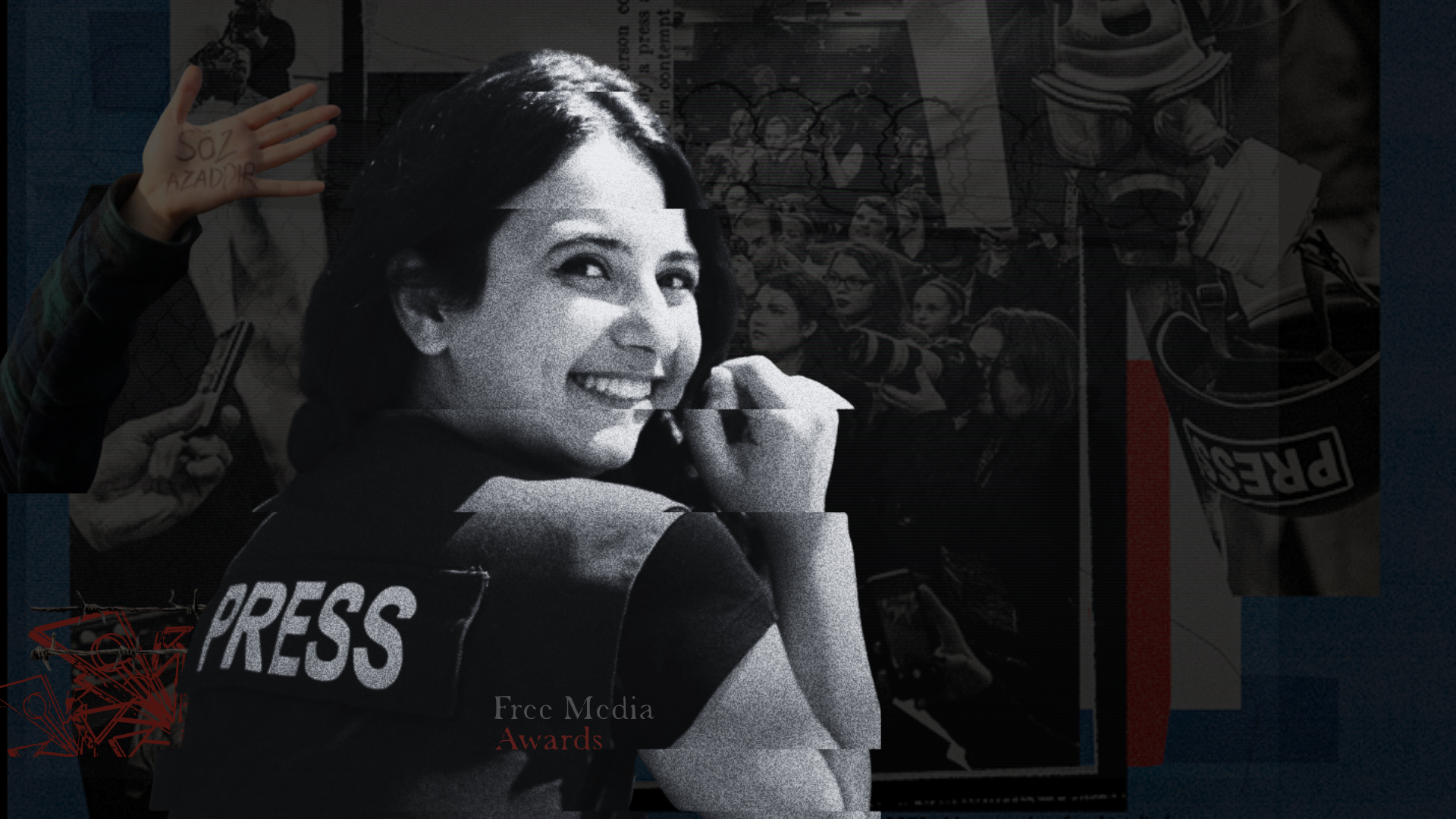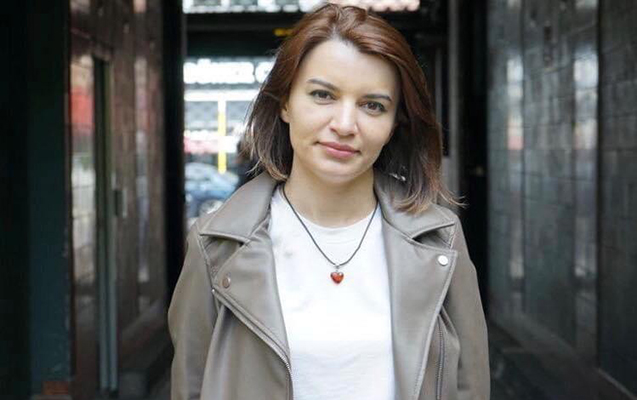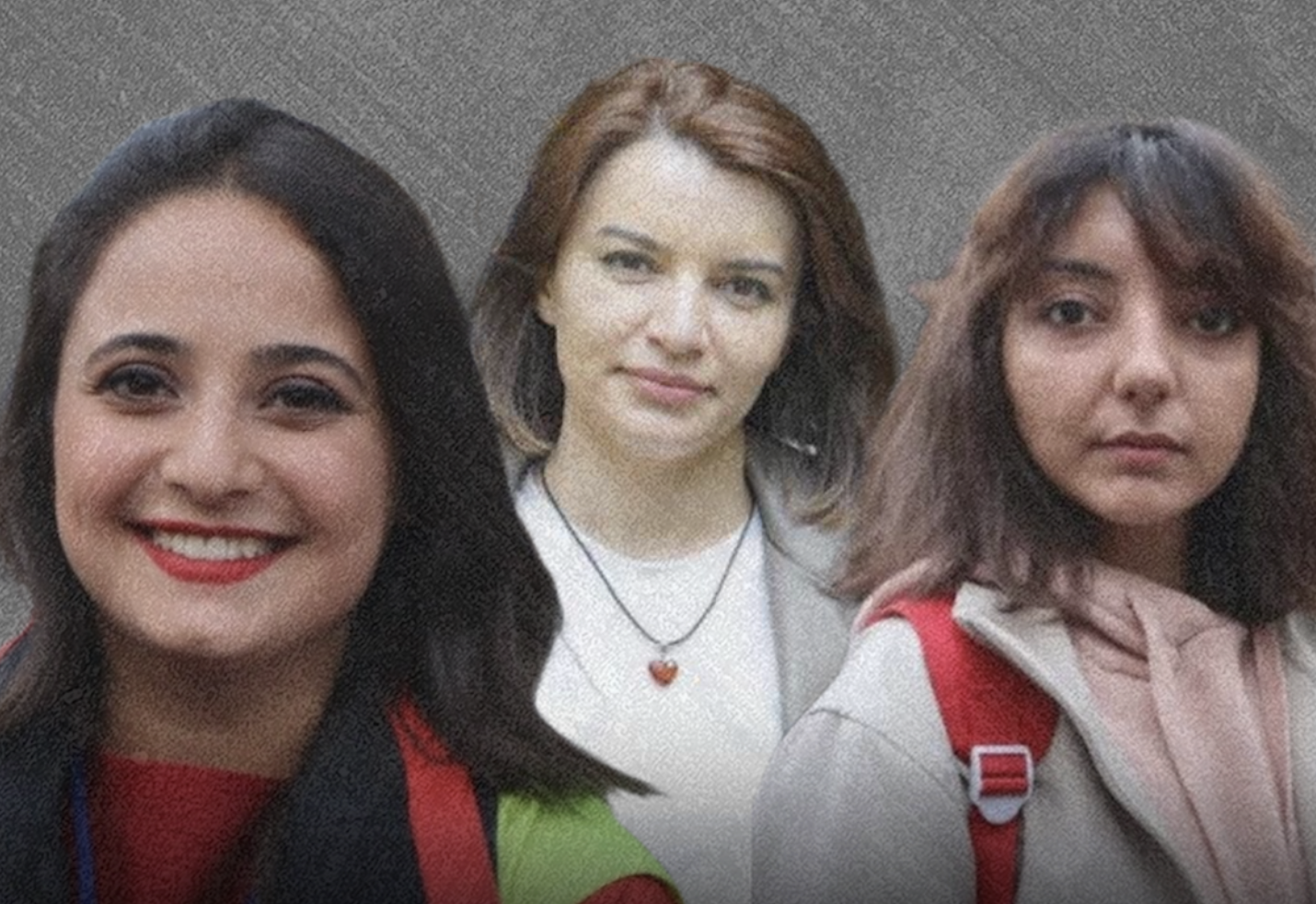As COP29 approaches, communication with relatives of those arrested in the "Abzas Media case" becomes more difficult.
Some restrictions have been applied against journalist Elnara Gasimova in the Baku Investigation Detention Center No. 1, where she is detained.
The journalist's mother, Natavan Gasimova, says that there were no problems with live meetings until the last parliamentary elections, but the situation changed after the elections.
"When we went, we could take a pen and paper and write what we wanted. However, after the elections and the news about the torture of a woman in that detention center, they did not allow us to have a live meeting, they did not allow us to take pen and paper inside."
Natavan Gasimova says that the pressures are not limited to the meeting ban; they are also subjected to demonstrative surveillance during the meeting behind the glass.
"When we went to the prison on October 12, a female worker stood over us until the end of the meeting. When I complained to the other guards, they said that she had been given such an assignment. I asked, why don't you leave the pen and paper? They said, paper is fine, not a pen, we were given such an assignment. Natavan Gasimova added.
Earlier, the same bans were applied to the journalists arrested in this case - Ulvi Hasanli and Sevinj Vagifgiz (Abbasova). Relatives associate these pressures with the journalists' occupation of the problems in the detention center where they are detained, and they say that as COP29 approaches, difficulties are created in their communication with their relatives.
Clause 1.24 of Article 8 of the decision of the Cabinet of Ministers dated February 26, 2024 on the approval of the internal disciplinary rules of prisons states that, in accordance with the law, an arrested person may meet with his close relatives or other persons whose contact is of legal interest to him. is one of the rights of individuals.
Lawyer Nemat Karimli says that subjecting the prisoner to discrimination and bans for publicizing the information in the detention center is contrary to both the requirements of the law and the internal disciplinary rules of prisons.
"The right of a person detained in a detention center to meet with his close relatives and persons of interest to him is determined by the legislation, not by the head of the detention center. These restrictions are discriminatory," the lawyer stressed.
"Abzas Media" was told by the Penitentiary Service about the meeting bans applied to "Abzas" prisoners that, according to the requirements of the internal disciplinary rules of the remand prisons, meetings of the arrested persons detained in the remand prisons under the authority of the institution can be held in special rooms equipped with a partition that allows free speech. is done.
Last year, on November 20, the director of "Abzas Media" Ulvi Hasanli, his deputy Mahammad Kekalov; on November 21, the editor-in-chief of the site Sevinj Vagifgizi; on November 30, journalist Nargiz Absalamova, on December 13, investigative journalist Hafiz Babali, on January 13- reporter Elnara Gasimova was also detained. They were charged under Article 206.3.2 of the Criminal Code (smuggling, when committed by a group of persons who colluded in advance), and preventive measures of arrest were chosen.
Farid Mehralizade, who was arrested on June 1, was also involved in the investigation on the "Abzas Media case". However, he denies his connections with this media outlet. The editorial office of "Abzas Media" announced in a statement that there was no cooperation with the economist.
Later, more serious charges were brought against those arrested in connection with the "Abzas Media case" with seven additional articles. Now they are accused of 192.3.2 (illegal entrepreneurship with obtaining a large amount of income), 193-1.3.1 and 193-1.3.2 (legalization of proceeds of crime by an organized group), 206.4 (smuggling by an organized group), of the Criminal Code of Azerbaijan. They are charged with articles 320.1 and 320.2 (falsification of documents and use of forged documents), as well as 213.2.1 (group tax evasion).
With these charges, they face up to 12 years of imprisonment instead of 8 years as before.
Journalists deny all accusations and link their arrests with corruption investigations published in "Abzas Media".

 Foto: Sosial Media
Foto: Sosial Media





